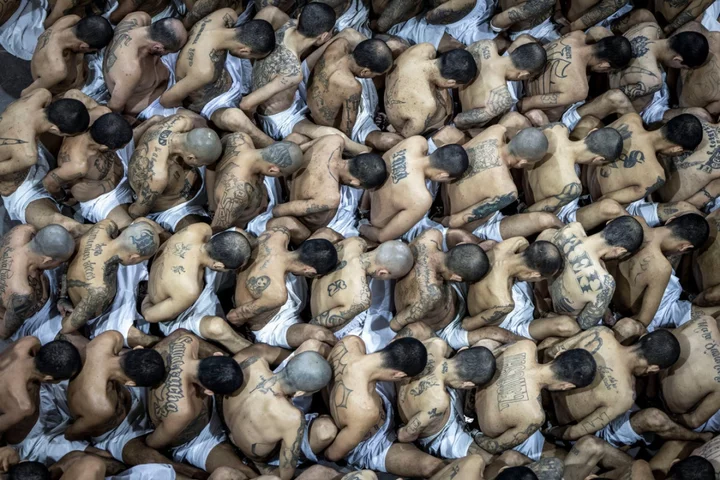New rules passed by El Salvador’s congress Wednesday will allow courts to try accused gang members in mass trials, in an effort to expedite tens of thousands of cases for those detained under the country’s crackdown on street gangs.
The changes to the country’s criminal code are just the latest in President Nayib Bukele’s war on the Barrio 18 and Mara Salvatrucha (MS-13) gangs, which began last year when the leader declared a “state of emergency” in response to a wave of violence.
His government suspended constitutional rights and has detained 71,976 people accused of being in gangs, or 1% of the country’s population. They have been jammed into prisons, fueling waves of accusations of human rights violations. As little as 30% of those detained have clear ties to organized crime, the human rights group Cristosal estimates.
The new rules allow trials to be held for groups of defendants based on what area they lived in and what “clique” — a smaller group within a gang — controlled that territory.
The legislation also increases prison time for those found to be gang leaders from 45 years to 60.
The government has used similar strategies in other parts of the crackdown, rounding up large groups of people often based on how they looked and where they lived. It also carried out mass arraignments, at which judges faced anywhere from 50 to 500 detainees at once, often not considering documents and other evidence that speak to the character of those facing charges.
The new trial rules, which were proposed weeks before, were pushed through by the Bukele-supporting majority in congress, while a smaller set of opposition politicians voted against the change.
Johnny Wright Sol, from the conservative Nuestro Tiempo party, called the changes “a scheme designed to carry out the government’s plan to keep all those detained without a firm conviction.”
“Doing these kinds of mass convictions just as they’ve done with captures is violating due process and violating the individual rights of all those accused,” he said.
Read MoreUkraine war’s heaviest fight rages in east - follow live
Charity boss speaks out over ‘traumatic’ encounter with royal aide

